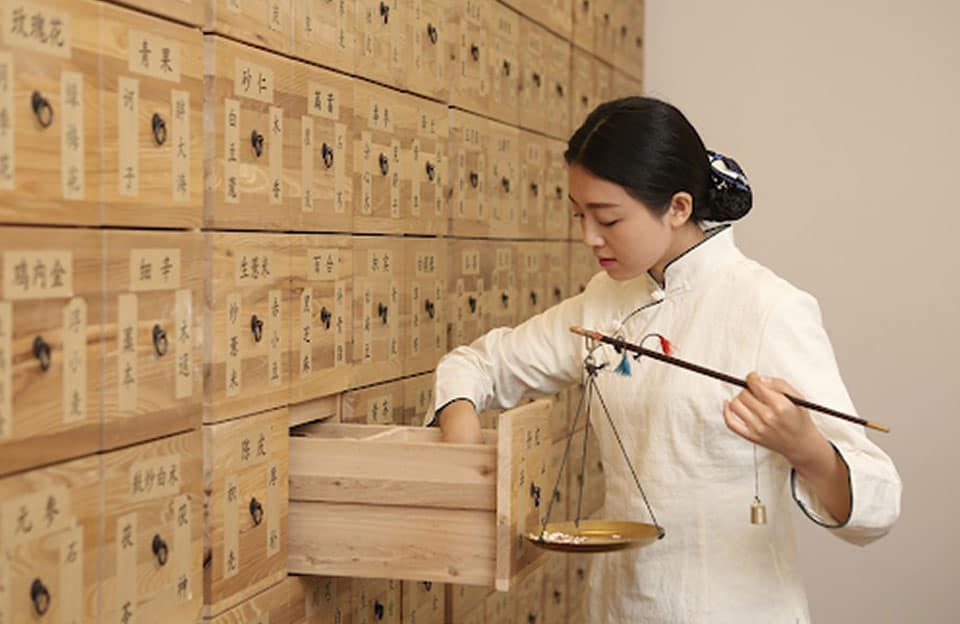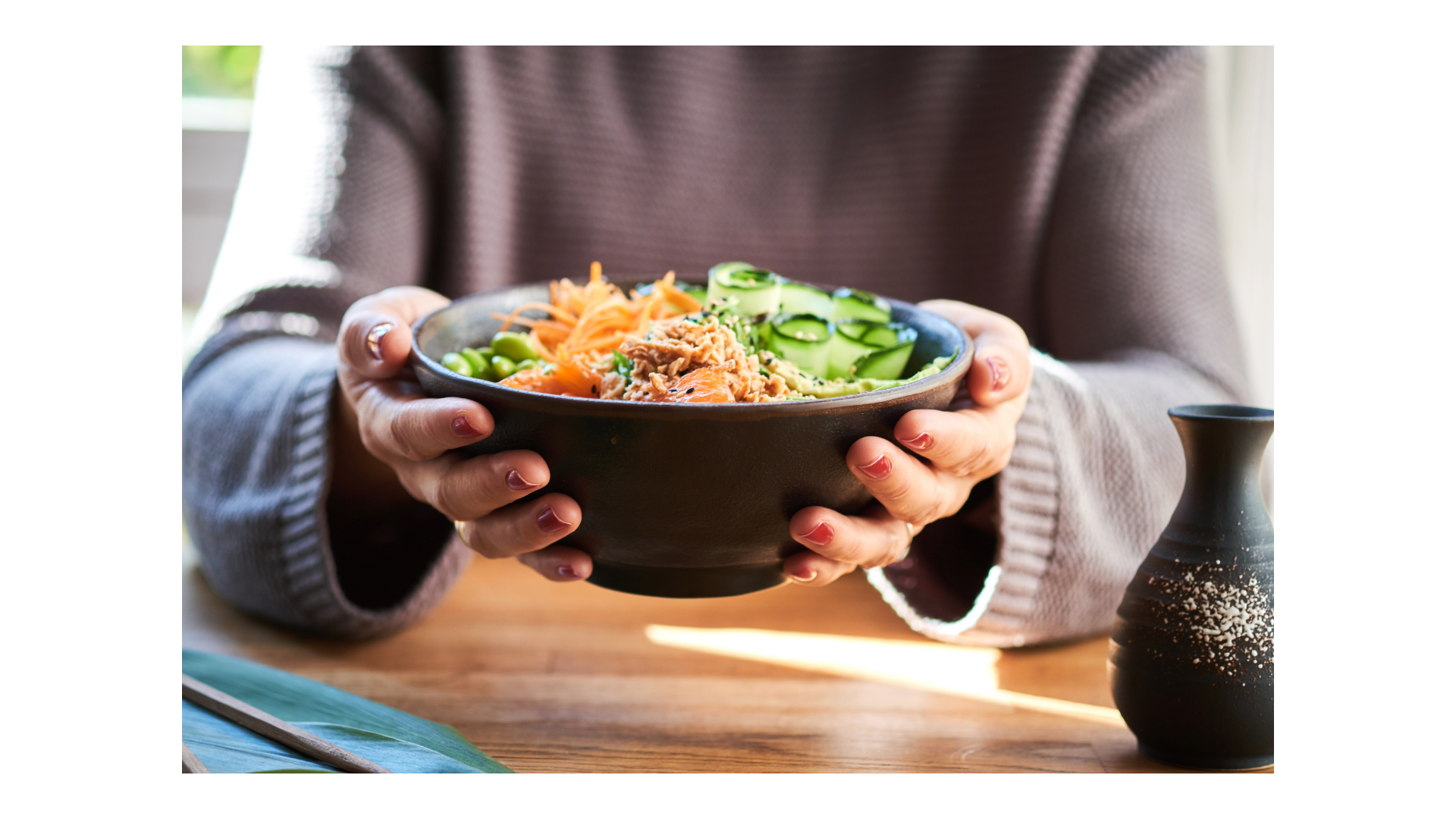Small intestinal bacterial overgrowth—SIBO—happens when there’s an abnormal increase in bacteria in the small intestine, specifically bacteria that are not commonly found in your digestive tract. It commonly occurs when something like surgery or disease slows the passage of various food and waste products in your digestive tract, which creates a bacteria breeding ground. This excess bacteria often causes malnutrition, weight loss, and diarrhea or constipation.
We’ll cover traditional methods of treating SIBO, how Chinese Medicine can help, and what lifestyle changes you can make to help eliminate SIBO and alleviate the symptoms.
Let’s start with the three phases of SIBO treatment.
Related: Watch our YouTube Video: SIBO: What It Is and How to Control It
SIBO Treatment Phase One: The Kill Phase
The first phase—or the “kill” phase—is when you’re taking medications to eliminate the SIBO, typically either a general antibiotic or an herbal alternative. Another treatment that may happen during this phase is starting a FODMAP diet, which we’ll talk about more later. People with severe SIBO symptoms can get early relief with this diet, but being too strict with it can possibly cause the bacteria to go into hibernation because they lost their food source.
SIBO Treatment Phase Two: The Healing Phase
It’s normally recommended that you get retested for SIBO two weeks after your antibiotic protocol is complete. However, some people continue to the next phase once they’re feeling better without getting tested again, as the test can be quite costly. Ideally, you’ll wait until you achieve a negative result and then begin to proceed with a diet modification to help rebuild your immune system and heal your intestinal lining. Following that, you’ll be able to slowly start reintroducing high FODMAP foods back into your diet.
SIBO Treatment Phase Three: The Recovery Phase
Because SIBO is a chronic condition, it can come back, but that’s not necessarily an indication that your treatment plan didn’t work—it typically means that you haven’t tackled the root cause. This phase is where making lifestyle modifications come in, and in some cases, it might be necessary to continue taking certain supplements, like ones that improve motility.
We’ll start by talking about how you can treat SIBO naturally with Chinese Medicine, and then we’ll go more in-depth about the three phases, treatments, and lifestyle recommendations.
Treating SIBO Naturally With Chinese Medicine
In Chinese Medicine, you can view SIBO as a damp heat stagnation residing in the Lower Jiao. However, this diagnosis doesn’t include the reasons for the SIBO’s underlying cause. You can break down the diagnosis for different underlying conditions into deficiency patterns of SP Yang, SP Qi, and Wei Qi deficiencies, LV Qi stagnation, or LV overacting on the SP/ST.
The first step when treating SIBO using Chinese Medicine is to clear the small intestine of the SIBO before starting tonification. A two to three-week regimen of Huang Lian Su—or Berberine—can help treat diarrhea from SIBO. During this time, it’s also important to stick to an anti-inflammatory, low-carb diet. It’s most important to eliminate common SIBO food triggers like dairy, eggs, soy, starchy vegetables, and grains. The idea here is to eliminate the foods that you digest in the ileum part of the small intestine, which is where you’ll find the highest concentration of SIBO, to help get rid of the bacteria’s endless food supply. Sheng Jiang—or ginger—tea is a natural prokinetic and can help break down biofilms that build up around bacteria, protecting it from antibiotics.
The less common type of SIBO, where constipation is the main symptom rather than diarrhea, can be treated using Allicin from Da Suan—or garlic—for two to three weeks prior to starting on the Huang Li Su mentioned above. The Chinese Materia Medica recognizes Da Suan as an anti-parasitic. The garlic helps SIBO by eliminating the methane or archaea-producing organisms in your gut. Once eliminated, you’ll typically move on to the Huang Lian Su treatment to heal the small intestine’s lining and get rid of the hydrogen-producing bacteria.
Dealing with SIBO can be stressful, and mindfulness practices like meditation through qigong or gentle yoga can help you manage that stress. Acupuncture is also supportive and can help clear SIBO and calm your nervous system. Your acupuncturist will know which points to consider to help clear up SIBO and help you start feeling better.
Related: How Acupuncture Works

Herbal & Pharmaceutical Antibiotics for SIBO Treatment
There are three categories for treating SIBO during the kill phase: antibiotics, herbal medicine, and the elemental diet. We’ll start by talking about herbal vs. pharmaceutical antibiotics.
There are various pharmaceutical antibiotics that commonly see use in SIBO treatment: Metronidazole, Rifacimin, and Neomycin. They are typically prescribed as part of a two to three-week regimen.
Rifaximin has the best reputation, even among naturopaths—mainly because it’s an antibiotic that has eubiotic effects, meaning that it specifically targets the bacteria we want to get rid of in the small intestine. Studies have shown that Rifaximin has mild side effects and only eliminates a minimal amount of the beneficial colon bacteria.
However, Rifaximin and other pharmaceutical options have a significant problem: with repeat use, you become more likely to be resistant to it. So, it might be worth a try, but it’s not something you want to use for many cycles. Natural options are equally effective and have fewer long-term risks.
Now, let’s look at herbal antibiotics.
People don’t prefer herbal options simply because they’re natural—certain herbal antibiotics have been proven to be as effective as pharmaceutical ones and come with the added benefit of fewer side effects and risks. The only downside is that the treatment regimen is longer, and some people don’t tolerate all of the herbs well. The two most studied herbal antibiotics for SIBO treatment are Metagenics—Candibactin-AR + Candibactin-BR—and biotics—FC Cidal + Dysbiocide—. The typical dosing for these is two capsules, twice a day, for four to six weeks.
Those two antibiotic protocols combine several useful medicines, including oregano, ginger, and Berberine. Another route is to, with the help of your Chinese medicine practitioner, design your own treatment with a unique combination of herbs and medicines. These include:
- Allicin—Although it’s derived from garlic, Allicin is a strong antimicrobial that doesn’t contain the FODMAPs that are found in other parts of the plant’s clove. Allimax is the highest-potency formula of Allicin. It’s a single-use herb that has been studied for SIBO treatment. It was shown to be effective for the methane-dominant forms of SIBO, and you can add it into other protocols or use it with Neem and Berberine.
- Berberine Complex—This complex contains herbs that are found in the Metagenics protocol listed above. It’s derived from Oregon Grape, Goldenseal, Barberry, and other herbs. Many people use this in conjunction with oregano oil and neem to treat the hydrogen-dominant forms of SIBO.
- Neem Plus—Neem is from tropical evergreen trees, and it is used to enhance the effects of Allicin and Berberine.
Oregano Oil—Oregano oil has long been known to be an antifungal, antiviral, and antimicrobial powerhouse. You can easily add a couple of drops to any drink or find it in capsule form.
Related: Shop Herbal SIBO Protocols
Natural SIBO Treatment: The Elemental Diet
For most SIBO patients, the elemental diet is a last resort when other methods don’t work. This diet involves drinking a specific medical solution for every meal over a two-week period. It’s not fun, but it’s a relatively fast strategy that is effective at starving the bacteria for many patients while still giving them the nutrients they need to stay healthy.
The elemental diet mixture contains liquid nutrients that are commonly used in medical facilities to help heal the digestive systems of GI patients. These nutrients get absorbed quickly in the first part of the intestines, meaning that they never make it all the way to the small intestine areas where the unwanted bacteria in SIBO patients congregate.
Typically, the elemental diet will go on for two weeks, and the patient will retest on the 15th day. If someone is on the elemental diet, it’s not recommended to take antibiotics (either pharmaceutical or herbal) during the course of it.

Natural Strategies for Supporting Digestion and Motility
Because you can use antibiotics and herbal alternatives as an interchangeable way to get rid of SIBO, the two things that really give your treatment an edge are Chinese medicine practices like acupuncture and herbal supplements and lifestyle changes to help get to the root cause of your SIBO.
First, here are some quick tips:
- Get in touch with an acupuncturist and talk to them about SIBO treatment.
- Try intermittent fasting.
- Avoid snacking throughout the day.
- Drink plenty of water.
- Try some bone broth before bed.
- Eat slowly and chew your food thoroughly.
- Add lemon juice to your water and drink it before meals to get the acid in your stomach flowing. The acid helps prevent bacteria from getting into the small intestines and aids in digestion.
Related: Indigestion From a Lack of Acid
Now, let’s talk about some added strategies to help treat your SIBO discomfort.
- Digestive enzymes—Bacteria can get trapped in the small intestines for various reasons. The problem escalates when the bacteria get fed too well. While you can employ the good habits we’ve talked about, taking digestive enzymes with your meals can help break food down so that it assimilates before reaching the bacteria.
- Prescription prokinetics—Prokinetics are an essential part of SIBO prevention, especially after you’ve finished a treatment protocol. If you go the pharmaceutical route, most doctors advise against starting on prokinetics until after finishing your antibiotics. If you don’t wait, the prokinetics can move the antibiotics through your system too quickly. The most common ones are low-dose Erythromycin and low-dose Naltrexone.
- Non-prescription prokinetics—Herbal prokinetics can help keep everything moving without needing a prescription, and they are commonly used at the same time as antibiotics, whether pharmaceutical or natural. There are various options:
- Motilpro—This prokinetic is made from ginger, and it’s quite potent. Typically, you’ll take three capsules before bed and two capsules between meals.
- Triphala—This prokinetic is basically a mild Ayurvedic laxative. One capsule before bed can help when you’re feeling backed up; it’s an effective treatment for SIBO-related constipation.
- Smooth Move Tea—This is a natural tea that has strong laxative properties. It’s a last resort herbal method to get your bowels moving when your SIBO is at its worst.
- Psyllium husk—This prebiotic fiber helps cleanse your colon and produce more predictable and even bowel movements. It’s also been shown to help treat IBS symptoms.
- Natural Calm—This product is made of calcium and magnesium. While it’s marketed for sleep and stress, it can also help keep you regular by adding a small bit to your water before bed.
- Supplements for reducing symptoms—During SIBO treatment, symptoms like gas, bloating, and GI distress don’t just disappear overnight. If your diet alone isn’t helping alleviate the symptoms, you can try some of these supplements:
- Iberogast—Taking 20 drops with your meals can help with bloating.
- GingerMax—One capsule with each meal can help alleviate most SIBO symptoms.
- Enteric-coated peppermint oil—You can add a drop or two to your water or take a capsule to help reduce bloating and gas.
- Visceral mobilization—This strategy can help remove blockages to your small intestine and isn’t utilized as people should. It essentially is a massage that targets the intestinal area, and many Chinese medicine practitioners can help with this, or at the very least, point you to someone who is trained in visceral mobilization.
How Chinese Medicine Can Help With SIBO
In Traditional Chinese Medicine, our Spleen Qi’s strength is synonymous with the health of our digestive system. The symptoms of SIBO and Spleen Qi deficiency mirror each other quite well.
Using techniques like herbal medicine, lifestyle modifications, and acupuncture, Chinese Medicine can help strengthen your Spleen Qi to reduce stress, promote digestive health, and help treat the causes and symptoms of SIBO. Our bodies have a natural drive towards balance, but it needs the right environment and building blocks to get there. Chinese Medicine can help get your body into a balanced, calm state where you can begin to heal and tackle the root cause of your SIBO.
Ready to kick SIBO to the curb? The trained Chinese Medicine practitioners at Original Breath are here to help.



